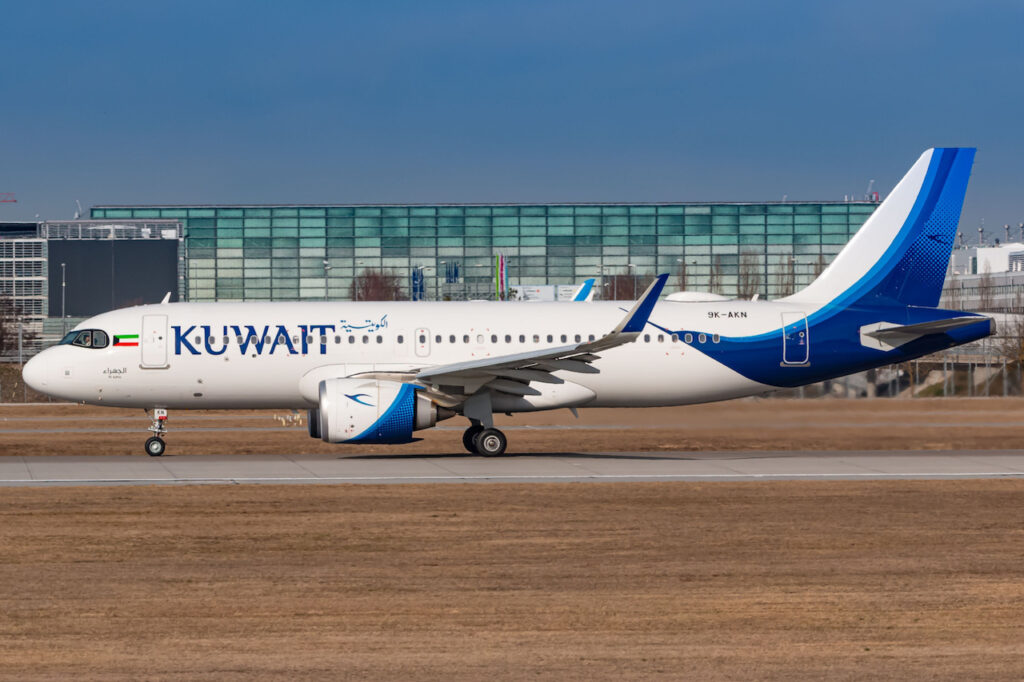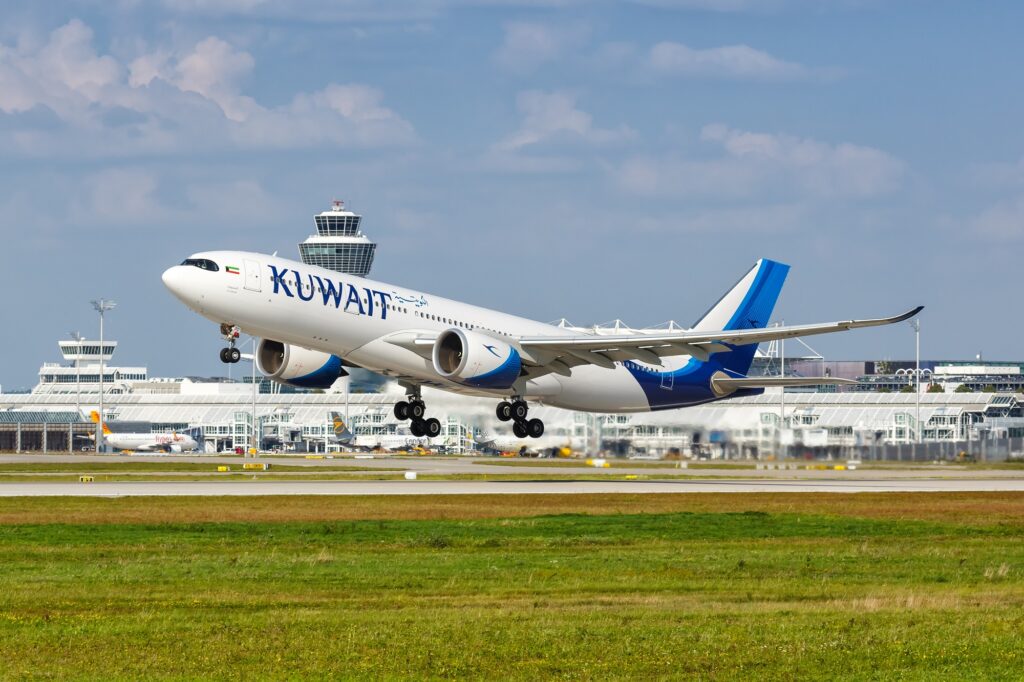Kuwait Airways is demanding compensation from Airbus in relation to delays in the delivery of commercial jets to the carrier.
The chairman of the Middle Eastern airline, Abdulmohsen Salem Alfagaan, has told reporters at the Dubai Airshow 2023 that delivery delays had forced the airline to adjust its route network and also reschedule flights, although he did not specify either the length of the delays or aircraft types affected.
State-owned Kuwait Airways currently has outstanding orders for seven Airbus A330-900neos and two A350-900 widebody jets. On the narrowbody front, the carrier is expecting nine A321neos and one A320neo from the European manufacturer.
“We are discussing it with them. There will be some compensation from Airbus themselves – they have to because we are affected,” Alfagaan told reporters.
Meanwhile, Airbus is keeping tight-lipped on the matter, telling reporters that “conversations with customers are confidential.”
Since the pandemic, aerospace companies have been struggling with bottlenecks in supply chains, as widespread logistics challenges and workforce shortages have plagued global aircraft production processes. As a result, pressure is mounting on aerospace companies to start paying compensation to customers in lieu of such delays.
While some airlines, such as Kuwait Airways, are scaling back expansion plans in light of these delays, others are turning to the burgeoning leasing and ACMI markets to keep their operational plans on track while waiting for new aircraft to be delivered.
Alfagaan said that the company was unlikely to place any new aircraft orders for three to four years, given the current market outlook.
The airline’s current passenger fleet consists of eight A320s, eight A320neos, five A330200s, and four A330-800neos.

The airline is reducing frequencies on some routes in the Middle East and Turkey due to a drop in demand for some destinations by as much as 50% as a result of the Israel-Hamas war, Alfagaan said. Even existing bookings to the region are being canceled amid travelers’ fears that the war could spark a wider regional conflict.
“People are reluctant to travel at the moment, but we are doing very well in the East and on European flights,” Alfagaan said, adding that while European routes were, on average, close to sold out, the airline was seeing an average system-wide load factor of around 70-80%.
About 60% of the airline’s passengers start or end their journey in Kuwait, while the remaining 40% are using Kuwait as a transit stop for onward connecting flights.
Kuwait Airways’ current business plan envisages profitability this decade.

